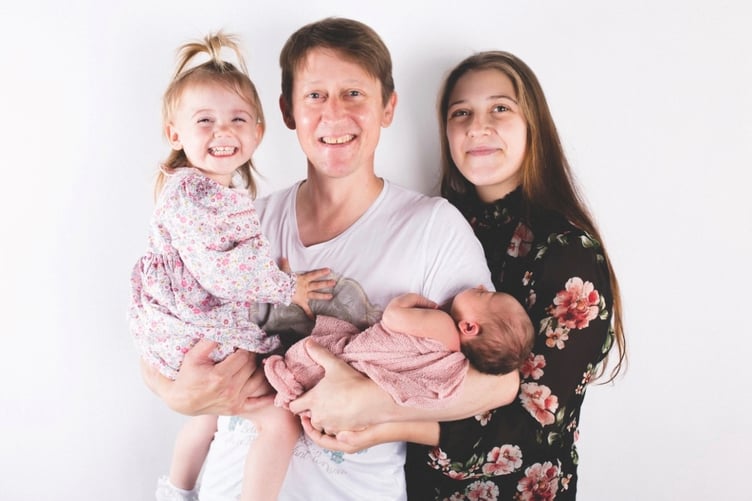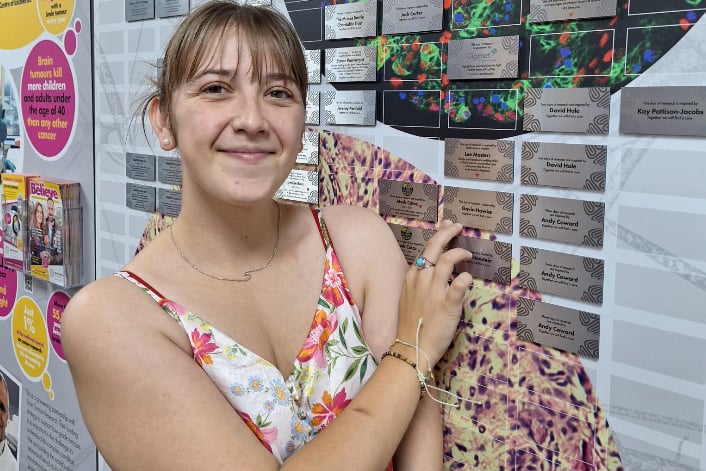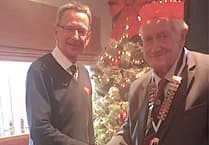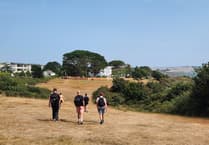A YOUNG woman from St Austell who lost her husband to an incurable brain tumour has visited a research centre which has benefited from her fundraising efforts.
Gavin and Alisha Hawke discovered he had cancer in 2019, only six weeks after their marriage and just two months after the birth of their first daughter Evelyn.
Surgery at Derriford Hospital in Plymouth confirmed that 42-year-old Gavin had a tumour in his brain, the cancer having spread from his spine.
Alisha, 26, said: “Despite enduring back pain for a decade, Gavin had always been so fit and healthy. He didn’t think it could be anything serious and never felt the need to get it checked. It was only on the day of our wedding that he developed pins and needles in his leg.”
Gavin received treatment and, in 2021, the couple had baby Elizah, a little sister to Evelyn. However, a year later Gavin began experiencing weakness in his leg and a routine scan in September showed new cancer growth in his spine.

Despite receiving further treatment, Gavin’s condition deteriorated rapidly and, sadly, he passed away at Mount Edgcumbe Hospice, in St Austell, in March last year.
After Gavin’s brain tumour diagnosis, Alisha had set herself a 150-mile challenge for Brain Tumour Research – to run or walk five miles a day throughout September 2020.
She raised more than £2,740, the amount needed to sponsor a day of research at the Brain Tumour Research Centre of Excellence at the University of Plymouth.
This month Alisha, along with Gavin’s parents Keith and Judy Hawke and her mother Sue Armstrong, was invited by Brain Tumour Research to the centre.
Alisha and her guests toured the laboratories accompanied by centre director Professor Oliver Hanemann.
They spoke to scientists about the work to find a cure for the disease and placed a memorial tile dedicated to Gavin on a wall of hope.
Alisha said: “It is encouraging to hear from the scientists about the work being done in their quest to find a cure, which can’t come soon enough.”
Brain Tumour Research funds research at a number of dedicated centres.





Comments
This article has no comments yet. Be the first to leave a comment.